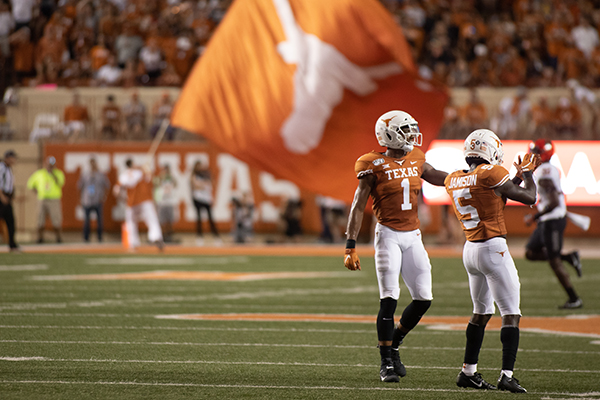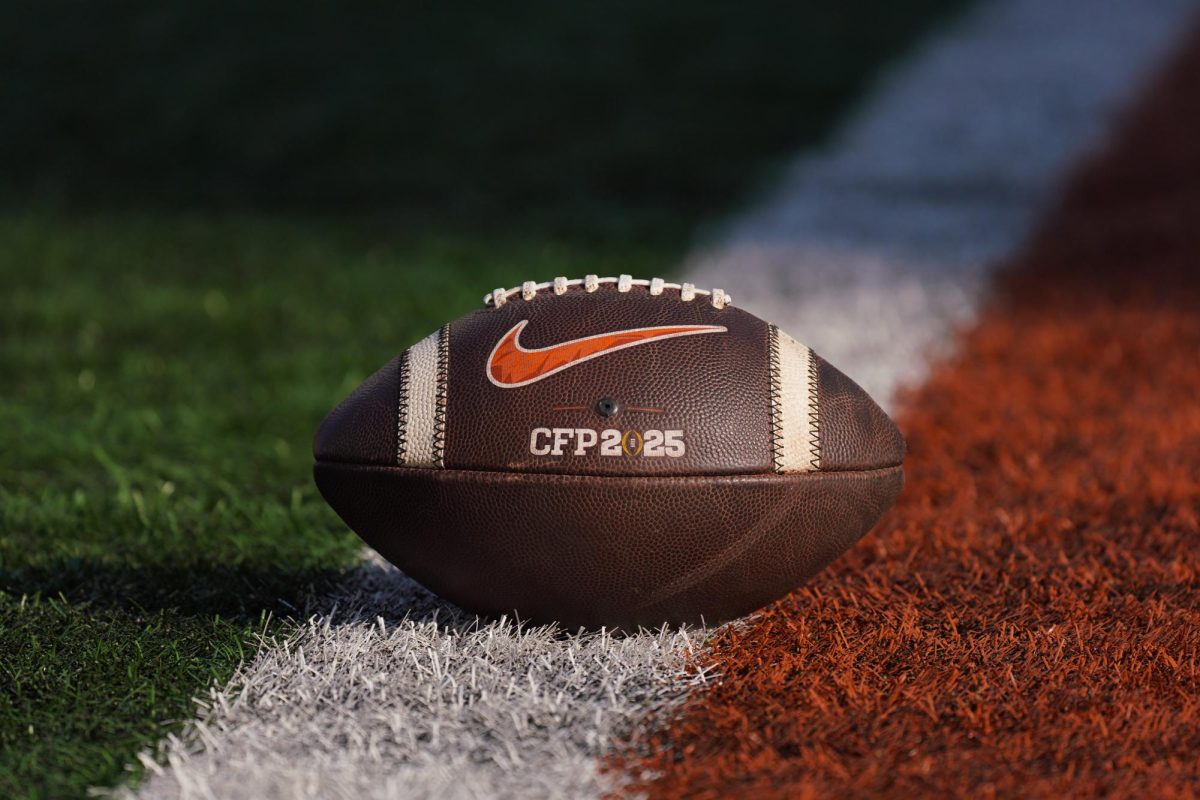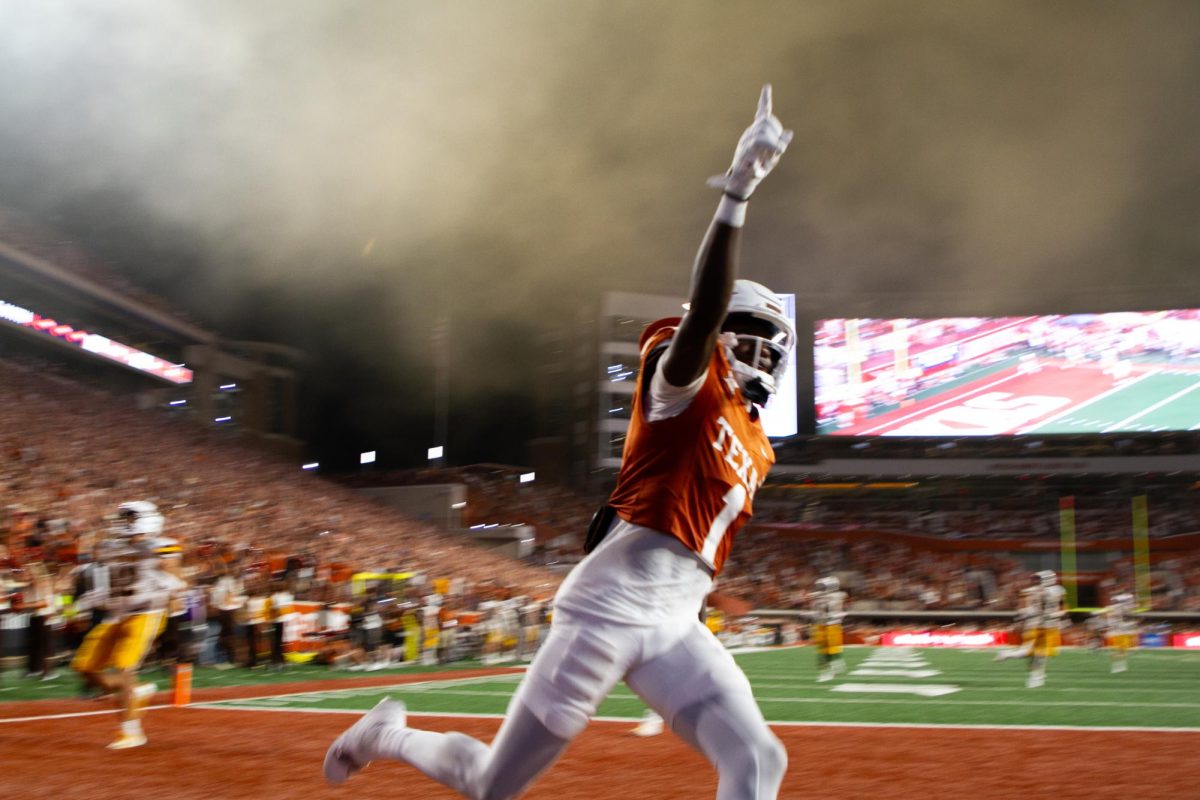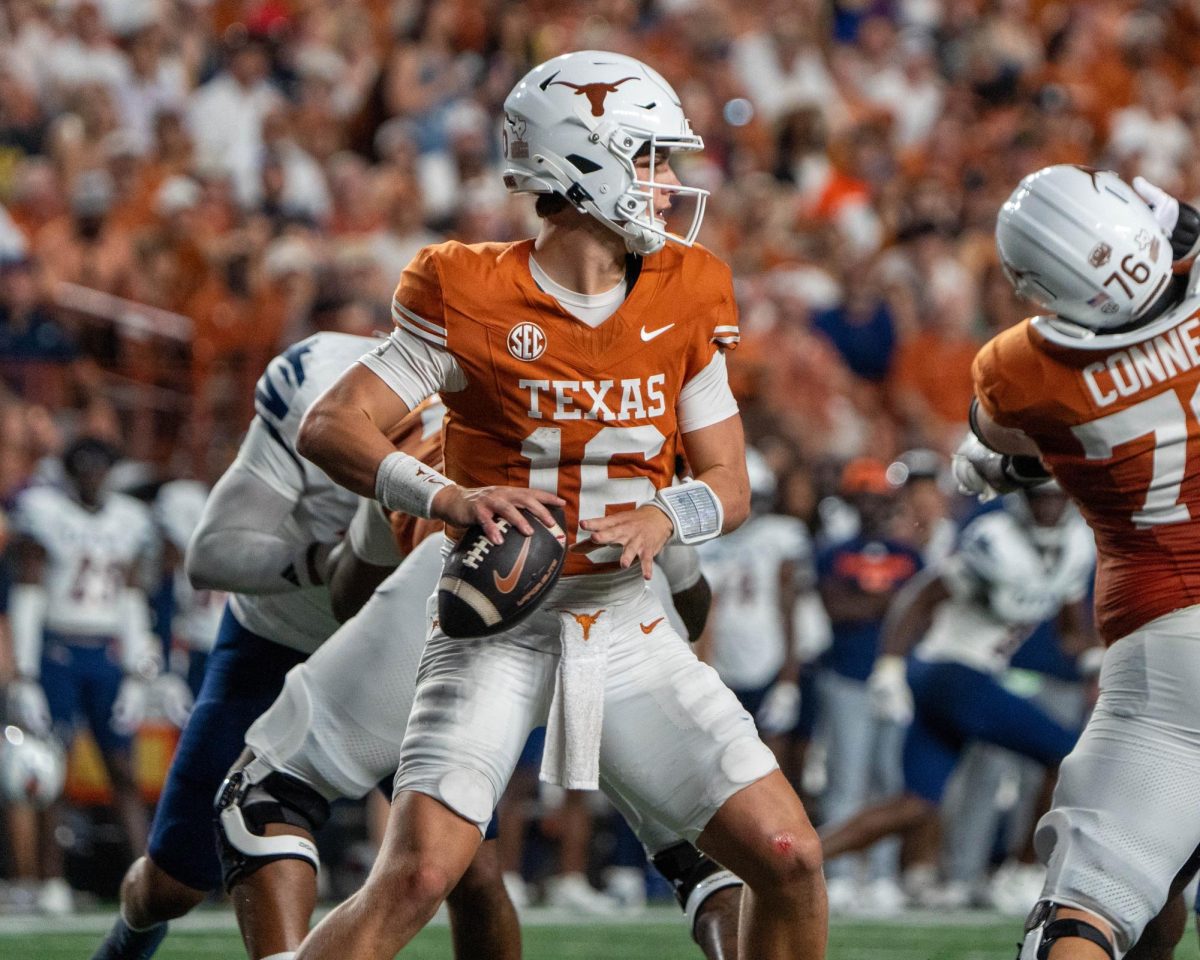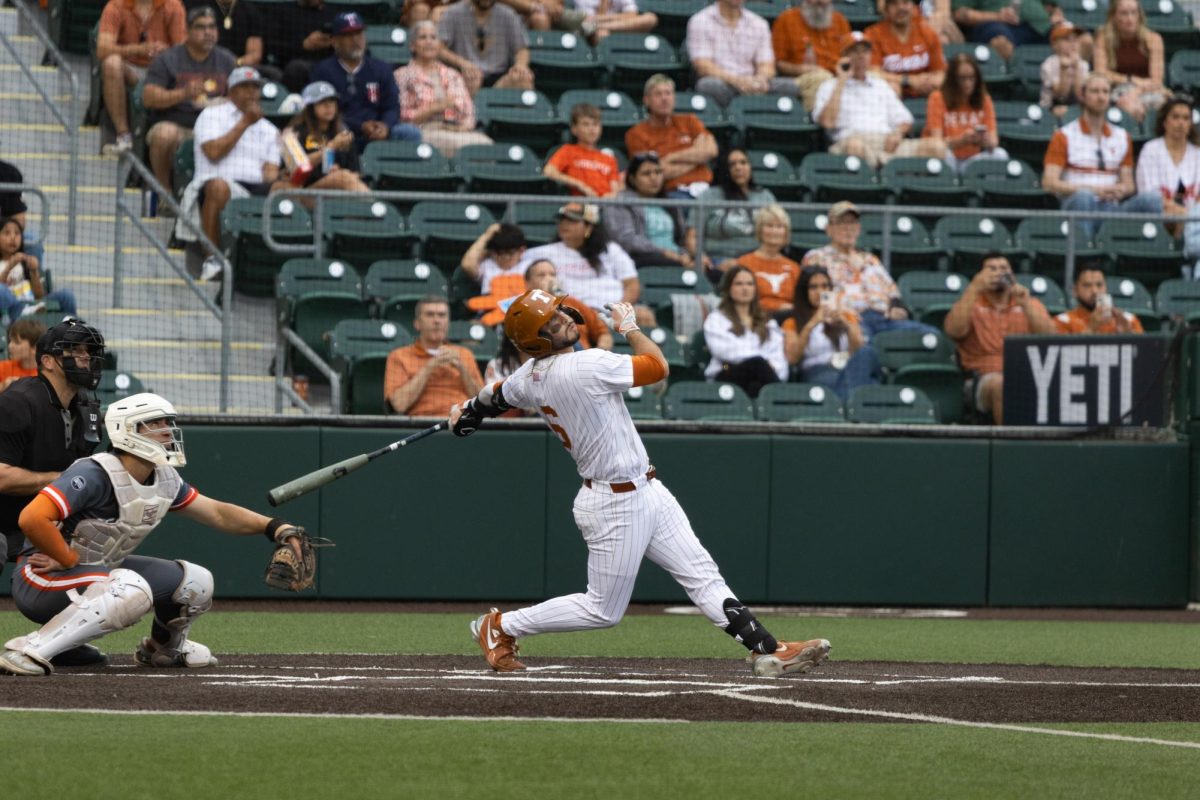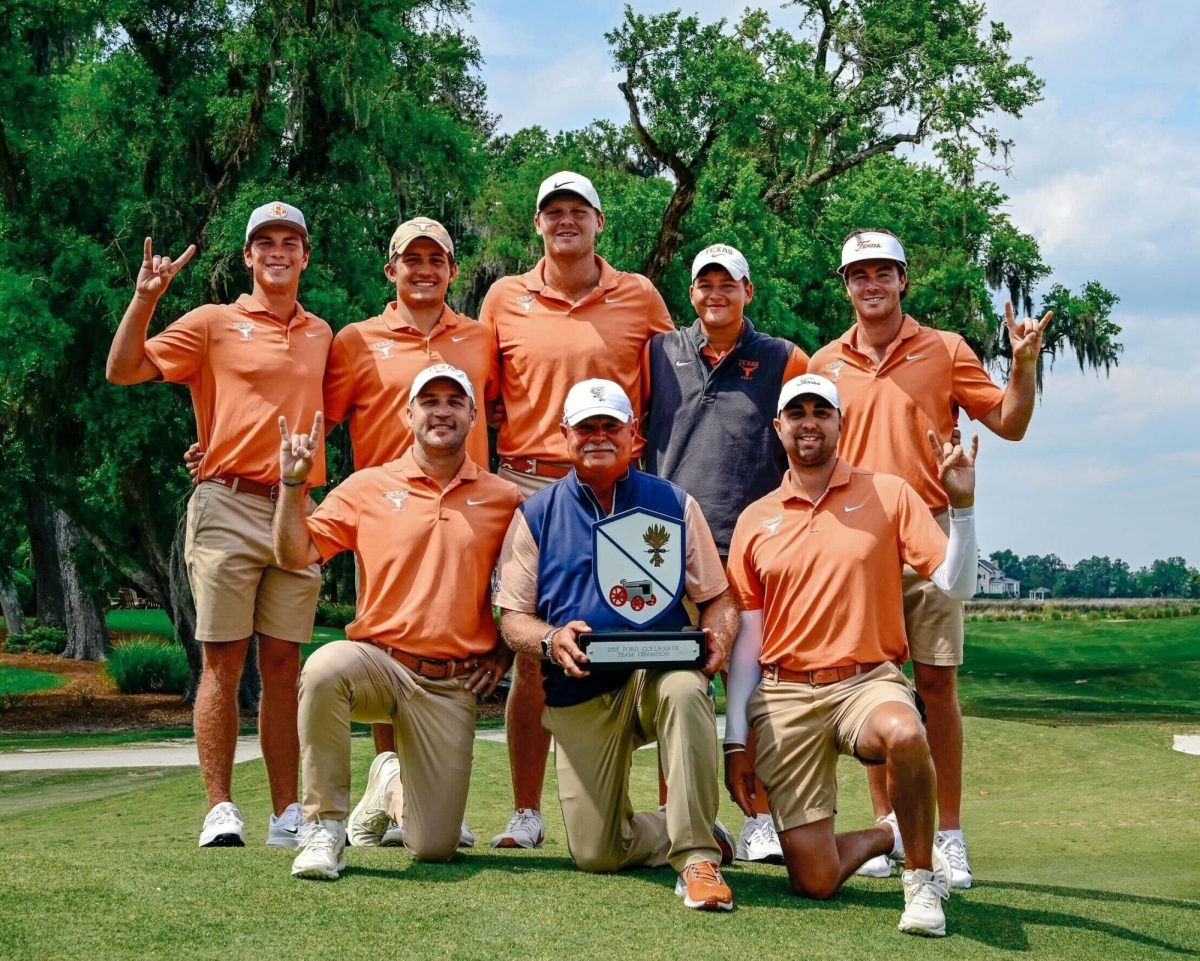Gone are the days of the three down linemen and third-down blitz for Texas. But so are days of the 12-game college football schedule and packed bleachers that envelop Darrell K Royal-Texas Memorial Stadium in the fall.
Sing-alongs to “Don’t Stop Believin’” in the sea of Longhorn fans won’t be the same. Dancing without care with the fans around DKR has been traded in for a burnt orange face mask. The mile commute from West Campus to the stadium has been replaced with a quick crawl from bed to the TV.
College athletes will now play in empty or nearly empty stadiums, while non-football fans must hear the screams and groans of fans passing through their apartment walls. The 25,000 fans spread throughout DKR this season will have to fill a space that once overflowed with over 100,000 people.
For players, it’s about holding teammates accountable to follow COVID-19 protocols that could jeopardize an entire season if violated. For senior quarterback Sam Ehlinger, the accountability is simple.
“I think just stressing the importance of what could happen if one person were to slip up on the protocols or go out when they shouldn’t have and bring (the coronavirus) back to the team,” Ehlinger said in a teleconference Tuesday. “Luckily for us, we haven’t set the example of what that looks like. I think just staying consistent and keeping our heads down, I think it’s a great way to keep guys focused on getting better.”
Once upon a time, players’ stress came from a demanding fanbase, coaches and internal monologue — not to mention the academic rigor that plagues every UT student. But now, a trip to the store or walk around campus can result in any player’s worst nightmare: a positive coronavirus test that could have catastrophic implications for their health and the season.
It’s a heavy burden for any 18-to-22-year-old college student to carry, especially when millions of dollars and a conference title are at stake. Their displicine is for their season and for their teammates, but it’s also for the thousands of fans who will gather at DKR on Saturdays.
“The things these young men are having to do just to play and just to compete in the sport that they love is monumental and is an extremely tall task, a task that nobody in organized sports has ever been asked to do before,” head coach Tom Herman said.
Herman’s statement rings true for all UT students. Nonathletes are dealing with tall tasks that carry heavy implications as well; a wrong move could infect roommates, family members or immunocompromised members of the community.
Now more than ever, Texas’ 1–0 mentality reigns supreme, as players don’t know if a game could be their last. Texas football facilities are littered with the mantra, a saying that has taken a new form this season. For now, the COVID-19 pandemic will play out alongside Texas’ season, continuing a “new normal” that can only be eclipsed by one thing for these players: football.
“The outside things aren’t going to go away. We just have to figure out a way to deal with them and still get the job done,” redshirt senior safety Chris Brown said. “We’ve done our best as a team to do that.”

